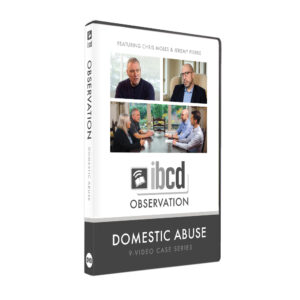Well-meaning church leaders often fail to distinguish between ordinary marital conflict and situations in which one spouse is abusing the other. The abusive spouse, usually the husband, is often able to manipulate inexperienced counselors by deflecting attention from his sin and focusing upon the sin of the mistreated spouse. Over time, as the oppression continues unabated, the mistreated spouse reaches the conclusion that the counseling is ineffective and that her church leaders are not adequately protecting her from the harm being done to her (Proverbs 31:8-9). She may begin to consider leaving her husband and her church. When she does, the church may respond with disciplinary pressure. Such complex situations require great wisdom and compassion.
In recent months I have seen abused women work with their church leaders to help educate them, so that they could act with more wisdom and faithfulness to the Bible in these situations. Here are some principles I have observed in these heroic women:
1. Assumed the best of her elders. “Love…believes all things” (1 Cor. 13:7). In other words, love assumes the best. Rather than judging her church leaders as being uncaring, she approached them under the assumption that they were seeking to please the Lord by acting biblically. She believed that their failure to properly understand her situation was not due to malice, but rather due to inadequate understanding about abusive relationships. Our hope is that when leaders better grasp patterns of sinful abuse and biblical principles of protecting victims of abuse, they will do what is right.
2. Approached her church leaders with respect. (Hebrews 13:17). Rather than coming with anger and bitterness, these women have appealed to their elders with a spirit of humility (Galatians 6:1) so as to restore them to their task of fulfilling God’s call to faithfully shepherd Christ’s sheep, while also protecting from wolves (Acts 20:28-29).
3. Brought along an advocate. Many women who have been mistreated have a difficult time speaking up. This challenge can be compounded when the abused party is the only woman in a room full of men. Some women have brought a mature, godly woman with them (Titus 2:3-5); one who has some experience and training in dealing biblically with cases of abuse. These women have helped give the oppressed woman a voice before her church leaders. They’ve also provided additional counsel for the abused woman.
4. Shared biblically based materials with her church leaders. Women and advocates have helped their elders learn to better care for victims of abuse by sharing excellent, biblically based books, audios, and videos. These resources can produce great success for dealing with abusive relationships. They include:
 a. The Heart of Domestic Abuse by Chris Moles. Chris does an excellent job of defining abuse, explaining how to protect victims, and bringing the guilty to repentance.
a. The Heart of Domestic Abuse by Chris Moles. Chris does an excellent job of defining abuse, explaining how to protect victims, and bringing the guilty to repentance.
b. “Helping Churches to Better Handle Cases of Abuse,” by Jim Newheiser. This includes a list of how to distinguish between true repentance and worldly sorrow in abusers.
c. A new IBCD Observation video series dealing with abuse. In this resource, Chris Moles counsels a mistreated woman and her abusive husband. The counseling team employs an advocate and teaches a well-meaning church leader how to better help spouses who are being oppressed.
Oppressed women and their advocates have also encouraged their leaders to seek advice from respected biblical counselors who have experience in dealing with such cases.
Conclusion
While some church leaders may prove to be unteachable, I have been greatly blessed to see counselees and their advocates gently and respectfully educate their church leaders, who then responded humbly as they learned how to better serve women who are in abusive situations.


